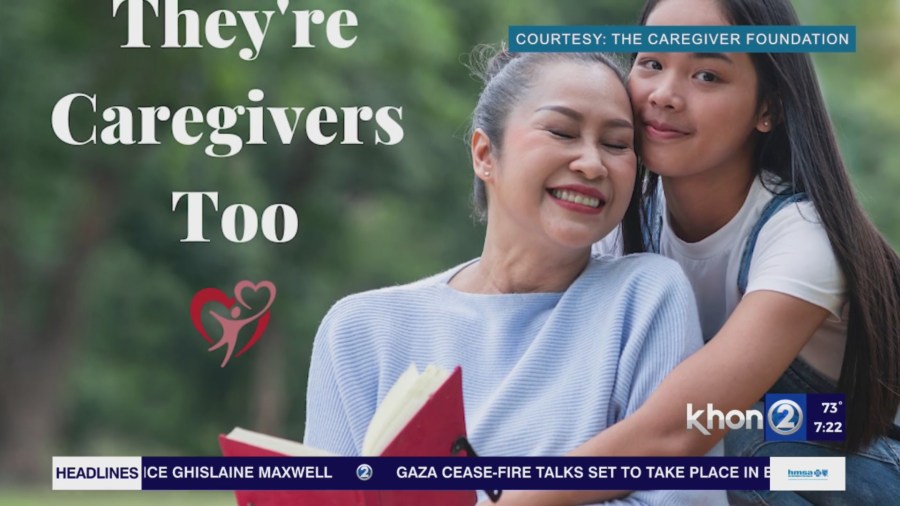HONOLULU (KHON2) — There’s a group of caregivers who are less talked about and often overlooked: “youth caregivers.”
A youth caregiver is anyone who is a primary caregiver for a family member and is under the age of 21. Some of them are as young as seven years old. There’s an estimated 5,000 youth caregivers in Hawaii alone.
Traditionally, keiki are raised to take care of our ohana. But according to Gary Powell, executive director of The Caregiver Foundation, that dynamic seems to be shifting.
“We see more and more kids actually becoming caregivers out of necessity, not out of culture,” Powell said. “When you suddenly have everybody in the family working, going different directions, and there is one person in the family who cannot take care of themselves, often the youngest person in that family becomes a caregiver out of necessity, instead of just being raised to take care of our own families.”
Powell says typically these youth caregivers are the primary house cleaners, meal prepares and they also take care of siblings, presenting many challenges — including missing out on their youth.
“They begin to realize, ‘I don’t get to do these after school activities,’” he said. “‘I don’t get to go to prom, I don’t get to do things like look forward to college or going into the workforce, because who’s going to take mom?’”
That’s why Powell, who was once a youth caregiver himself, is working on a virtual support program for youth caregivers. The first virtual support group will begin in January 2026.
“That’ll give them a form to meet other caregivers and still have professional help at that professional facilitator, but it’s a safe place for them to express frustrations, anger, sorrow, whatever they need to talk about, and to also tie them into resources that are available,” Powell said.
Powell said they’ll go through school counselors to make the program known. His organization also has scholarships available right now.
“These are not kids that are asking for anything. They’re usually not asking because they don’t want anybody coming in and breaking up the family. They are just taking care of family. So wonderful kids, and they need our support,” Powell said.
